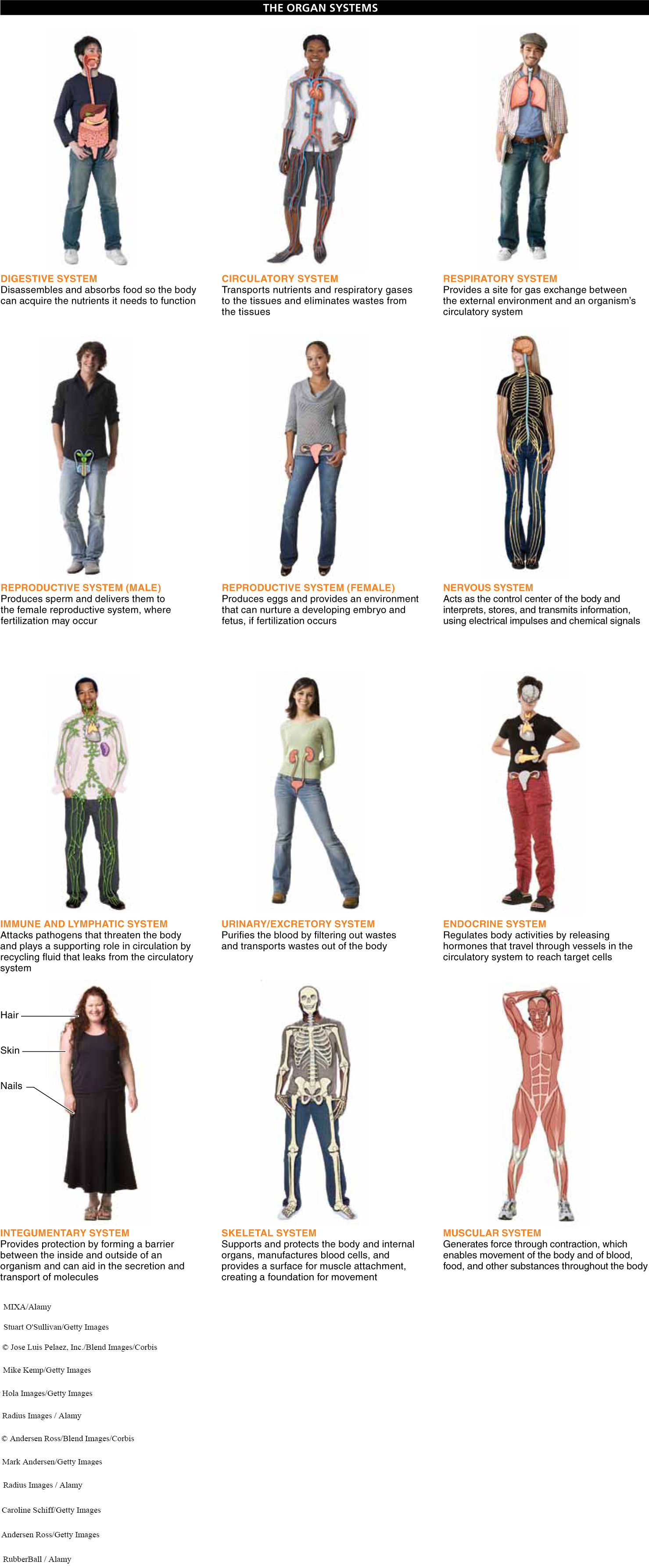20.6 Each organ system performs special tasks.
Most animals have some tissues that are organized into organs (the exceptions are sponges and some cnidarians). Organs are structures, such as the heart, brain, lungs, and liver, that serve specialized functions and consist of multiple tissue types. And just as cells make up tissues and tissues make up organs, organs, too, are part of larger functional units, the organ systems, which carry out the various physiological processes necessary for the growth, development, maintenance, and reproduction of organisms.
We briefly describe 11 animal organ systems in FIGURE 20-12, and we’ll discuss them in greater detail in Chapters 21–

802
It’s important to keep in mind that these systems do not operate in isolation: in carrying out its tasks, each system depends on the proper functioning of one or more of the other systems and, in turn, often influences the functioning of other systems. The act of running, for example, might be initiated when the nervous system detects a threat and sends impulses to the musculoskeletal system (which causes the body to move), to the respiratory system (which increases the rate of oxygen consumption), and to the circulatory system (which increases the rate at which the heart pumps blood and thus increases the oxygen available to muscle tissue).
803
As we explore organ systems in more detail in the following chapters, we’ll pay particular attention to the ways in which the form and function of the systems’ components are intimately related and what this relationship reveals about how these systems (and the organisms of which they are a part) evolved.
TAKE-HOME MESSAGE 20.6
In nearly all animals, some tissues are organized into organs that serve specialized functions and consist of multiple tissue types. These organs are part of organ systems that carry out the various physiological processes necessary for the organism’s growth, development, maintenance, and reproduction.
The book describes eleven organ systems, which we will explore in more detail in coming chapters. Is it accurate to say that each organ system operates independently of the other systems in the body? Why or why not?
804